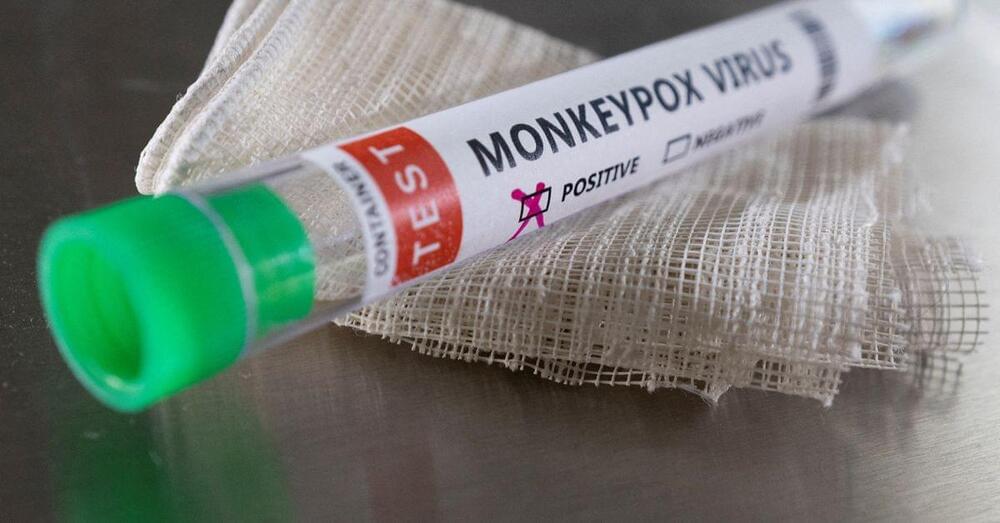The Windows 11 22H2 (Sun Valley 2) RTM build 22,621 has resurrected an old bug whereupon a system gets a “hardware security not supported” message even on PCs that meet the necessary requirements.



The will help you find new opportunities to use and further develop your machine learning skills.
Machine learning has proven to be a tool that performs well in a variety of application fields. From educational and training companies to security systems like facial recognition and online transaction prevention, it is used to improve the quality and accuracy of existing techniques.
Choosing the best tools for machine learning and navigating the space of tools for machine learning isn’t as simple as Google searching “machine learning tools”.
There are many factors to consider when choosing a tool for your needs: types of data you’re working with, type of analysis you need to perform, integration with other software packages you’re using, and more.

NASA said it was interested in UAPs from a security and safety perspective. There was no evidence UAPs are extraterrestrial in origin, NASA added. The study will begin this fall and is expected to take nine months.
The team will gather data on “events in the sky that cannot be identified as aircraft or known natural phenomena — from a scientific perspective,” the agency said.

Voltage Enterprises is an Abu Dhabi-based company founded a year ago. It describes itself as a disruptive energy innovator. It claims to have invented a zero-carbon emissions fuel that is cheaper than natural gas. It calls the fuel Kinetic 7 ™. The information I received states:
“The clean gas, which is carbon neutral with net-zero emissions, will give global economies access to a cheap, endless supply of clean energy. Importantly, it will allow countries to maintain the security of their gas and energy supplies whilst also meeting their carbon-neutral net-zero targets. This discovery could play a major role in reversing the global energy crisis, significantly reducing energy costs to the consumer and businesses sectors at a time when the cost-of-living crisis is worsening, and inflation has reached a 40-year high.”
If that doesn’t sound fantastic to you then I am surprised. Kinetic 7 is purportedly manna from heaven for the energy industry or represents disruptive change on a global scale. So which is it and what is it?

“After public knowledge of the exploit grew, we began seeing an immediate response from a variety of attackers beginning to use it,” says Tom Hegel, senior threat researcher at security firm SentinelOne. He adds that while attackers have primarily been observed exploiting the flaw through malicious documents thus far, researchers have discovered other methods as well, including the manipulation of HTML content in network traffic.
“While the malicious document approach is highly concerning, the less documented methods by which the exploit can be triggered are troubling until patched,” Hegel says. “I would expect opportunistic and targeted threat actors to use this vulnerability in a variety of ways when the option is available—it’s just too easy.”
The vulnerability is present in all supported versions of Windows and can be exploited through Microsoft Office 365, Office 2013 through 2019, Office 2021, and Office ProPlus. Microsoft’s main proposed mitigation involves disabling a specific protocol within Support Diagnostic Tool and using Microsoft Defender Antivirus to monitor for and block exploitation.

Following an early morning vote in Albany on Friday, lawmakers in New York passed a bill to ban certain bitcoin mining operations that run on carbon-based power sources. The measure now heads to the desk of Governor Kathy Hochul, who could sign it into law or veto it.
If Hochul signs the bill, it would make New York the first state in the country to ban blockchain technology infrastructure, according to Perianne Boring, founder and president of the Chamber of Digital Commerce. Industry insiders also tell CNBC it could have a domino effect across the U.S., which is currently at the forefront of the global bitcoin mining industry, accounting for 38% of the world’s miners.
The New York bill, which previously passed the State Assembly in late April before heading to the State Senate, calls for a two-year moratorium on certain cryptocurrency mining operations which use proof-of-work authentication methods to validate blockchain transactions. Proof-of-work mining, which requires sophisticated gear and a whole lot of electricity, is used to create bitcoin. Ethereum is switching to a less energy-intensive process, but will still use this method for at least for another few months.


LONDON, June 1 (Reuters) — Monkeypox appears to be spreading from person to person in England, the UK Health Security Agency (UKHSA) said on Wednesday.
The usually mild viral disease, which is endemic in west and central Africa, is understood to spread through close contact. Until early May, cases rarely cropped up outside Africa and were typically linked to travel to there.
“The current outbreak is the first time that the virus has been passed from person to person in England where travel links to an endemic country have not been identified,” the agency said.

From banking to communication our modern, daily lives are driven by data with ongoing concerns over privacy. Now, a new EPFL paper published in Nature Computational Science argues that many promises made around privacy-preserving mechanisms will never be fulfilled and that we need to accept these inherent limits and not chase the impossible.
Data-driven innovation in the form of personalized medicine, better public services or, for example, greener and more efficient industrial production promises to bring enormous benefits for people and our planet and widespread access to data is considered essential to drive this future. Yet, aggressive data collection and analysis practices raise the alarm over societal values and fundamental rights.
As a result, how to widen access to data while safeguarding the confidentiality of sensitive, personal information has become one of the most prevalent challenges in unleashing the potential of data-driven technologies and a new paper from EPFL’s Security and Privacy Engineering Lab (SPRING) in the School of Comupter and Communication Sciences argues that the promise that any data use is solvable under both good utility and privacy is akin to chasing rainbows.

Marketing and the need for data rules
Legislators and decision-makers worldwide have also been active in regulating data although it’s almost impossible to keep pace with change in many places. The genuine exploitation of data requires rules and regulations, as growth always increases the potential for misuse. The task of technology companies is to build data pipelines that ensure the trust and security of AI and analytics.
Data is the new currency for businesses, and the overwhelming growth rate of it can be intimidating. The key challenge is to harness data in a way that benefits both marketers and consumers who produce it. And in doing this, manage the “big data” in an ethically correct and consumer-friendly way. Luckily, there are many great services for analyzing data, effective regulation to protect consumers’ rights and a never-ending supply of information at our hands to make better products and services. The key for businesses is to embrace these technologies so that they can avoid sinking in their own data.